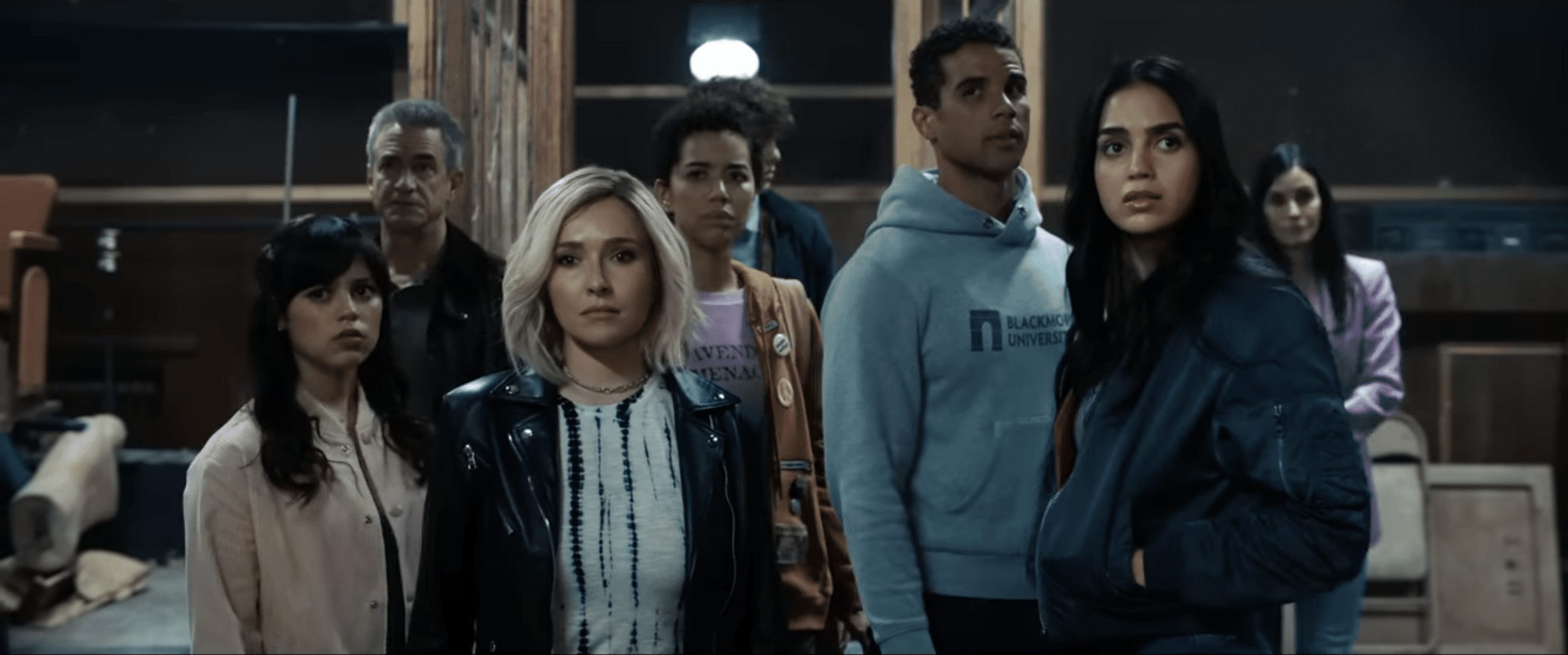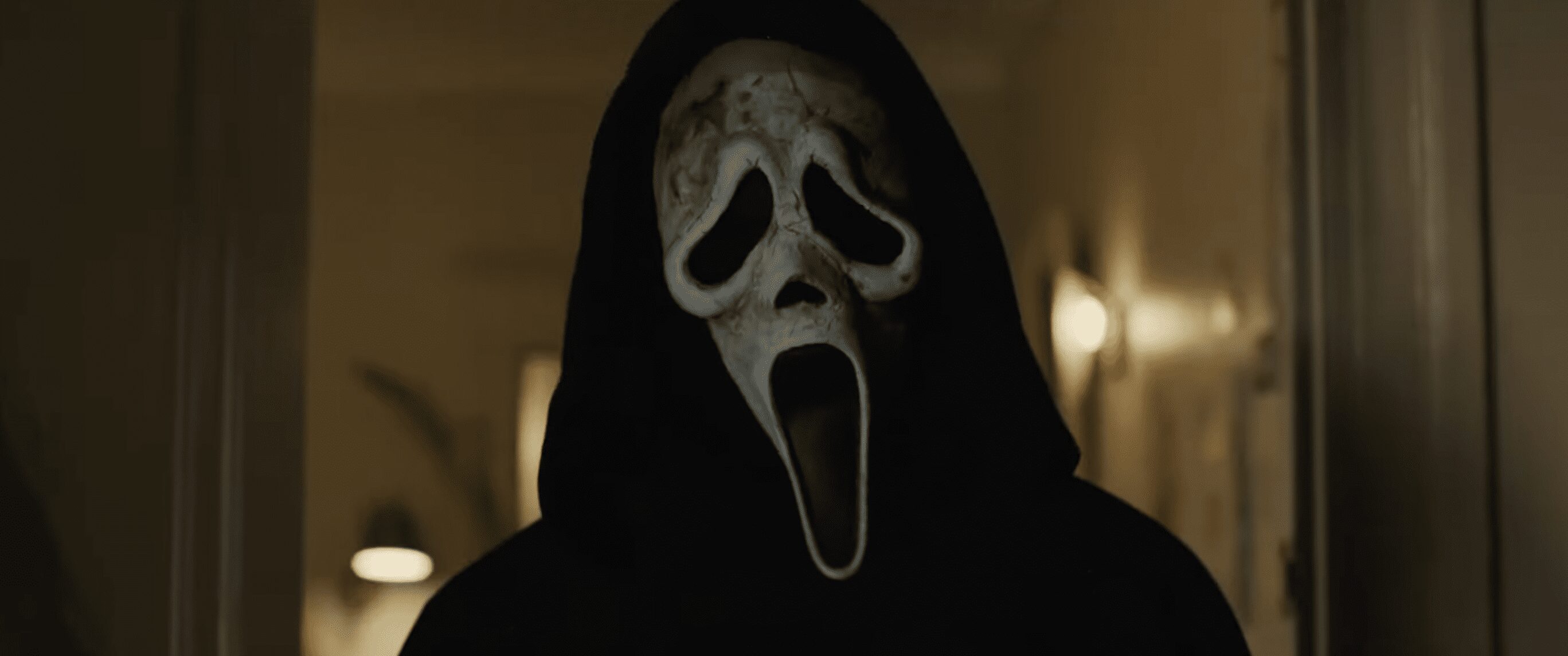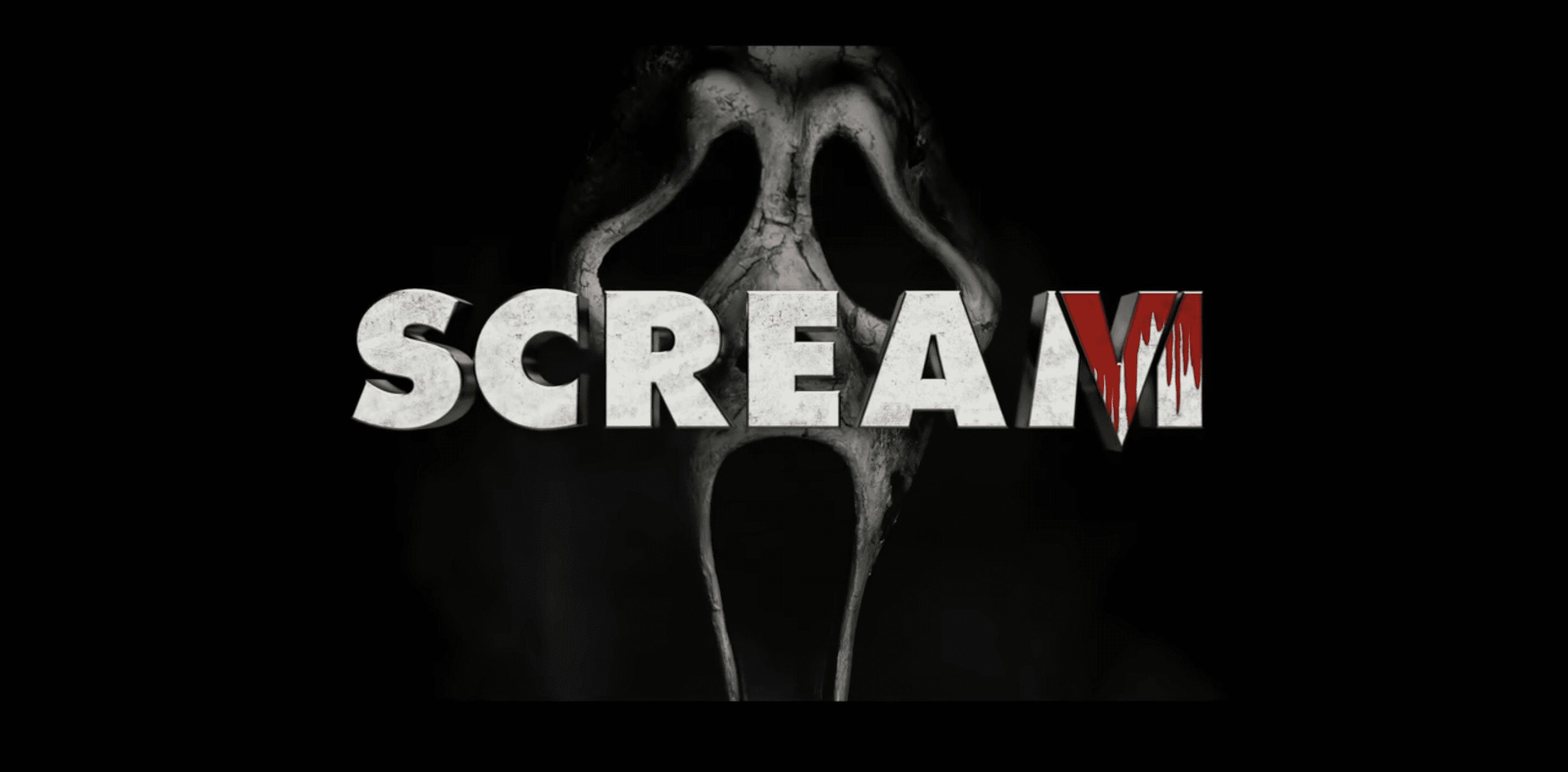Spoilers will be discussed in this review for Scream VI.
Sequels, trilogies, reboots and the requel. Now we’ve got Scream VI, which struggles to fit into any of these categories. The biggest problem with Scream VI is the absence of the franchise’s beloved mainstays. David Arquette’s dippy Dewey died in Scream V, and Neve Campbell declined to return for the new film over a pay dispute. Melissa Barrera carries the sequel with flawless grace and edgy brutality as the ostracised survivor from the last Woodsboro massacre. However, something is missing without Campbell, the face and leading star of the Scream franchise for more than two decades. Barrera has been brilliant since debuting in Scream V, but these are huge boots to fill.
Courteney Cox reprises her role as Gale Weathers, the only surviving mainstay from the 1996 original, but the former Friends actress fails to make any lasting, worthwhile impression on the film. With impenetrable plot armour, Cox’s contribution to Scream VI is a near-death showdown with the latest Ghostface, followed by some off-screen “investigating” that neatly ties plot lines together with little explanation. In Cox’s most nostalgia-inducing scene, Tara clatters the reporter with a fist after dodging Sam’s first attempt, which fulfils the audience need for nostalgic throwbacks.
With her one and only beloved Dewey dead, Gale’s relevance in the film lessens considerably. A legacy character without much to say or do who sticks around nevertheless. Rounding out the cast are some returning faces from Scream V and a handful of fresh, disposable additions. These include the eccentric Quinn Bailey, her father Detective Wayne Bailey (or new Dewey, played by Dermott Mulroney), Ethan (Jack Champion), Jason Carvey (Tony Revolori of Spider-Man fame), the film’s first Ghostface victim Laura Crane (Samara Weaving), Danny Brackett, the secretive, cute neighbour next door played by Josh Segarra, and a disappointingly brief appearance from the brilliant Henry Czerny as Sam’s therapist Doctor Christopher Stone. Hayden Panettiere reprises her role from Scream 4, and now, remarkably, she’s a cop. Jenna Ortega, Mason Gooding, and Jasmin Savoy Brown return from the last film to flesh out the supporting cast.

The writers effectively weave easter eggs from previous films, as the latest iteration of Ghostface discards the masks belonging to the former franchise killers at each crime scene. In a shrine dedicated to Ghostface, a central location for the film’s explosive third act, the film offers a litany of nostalgic throwbacks audiences may remember, provided they’ve binged the series in the lead-up to Scream VI. There’s the television that crushed Stu Macher in the original Scream, the knife belonging to Stu’s partner Billy Loomis, Sam’s hallucinations of a de-aged Skeet Ulrich, and a nod of recognition to Roman Bridger, the lone antagonist from the underrated Scream 3.
In a first for the franchise, the sequel reveals not two but three killers, led by Detective Wayne Bailey. Quinn, who bites the dust early into the film, and Ethan, the dorky blameless student labelled as a suspect by those around him, are revealed as the son and daughter of Dermot Mulroney’s demented detective. In another twist, the trio reveal that Richie Kirsch (Jack Quaid of The Boys), one half of the Ghostface crew from Scream V, was a brother and eldest son in the family. As for a post-credits scene, it’ll make you laugh. Mindy-Meeks Martin (Savoy Brown) restates that not all franchised films require post-credit scenes, and that’s it. Should have seen it coming.
Without Neve Campbell and David Arquette, Scream VI feels a little hollow on character development and dialogue, but remains a rougher, edgier, and more hardcore entry than previous Scream instalments. Scream 2 retains the crown for best film in the series, but VI is a noble effort. Any avid moviegoer could take a pretty good guess at what the sixth instalment in the popular slasher franchise will cover. We’re in the age of the cinematic franchise, so naturally, the concept becomes the headlining topic for critical analysis and dissection in Scream VI.

Is it enough to sustain the movie for a two-hour runtime?, well…, just about. The series will struggle to find new ground to tread and run the risk of feeling tiresome and unnecessary, since the core structure of each film focuses on the respective horror tropes of the time. Six films down, and the series is beginning to teeter perilously close to falling into the tired-out franchise trap, save for some stealthy writing and misdirection. Film seven would need to be something truly original and new.
If the Scream series maintains its current course with a more frequent roster of films, the folks behind the series will have free creative licence to expand the story beyond their core characters, or the “core four” as Chad hails them, but at the same time, such an expansion could mark its downfall. The Scream films have famously chewed over the tropes and cliches of popular horror culture and revitalised the slasher genre in the 90s. With two films in two years, this is where this series could become unstuck. Where do you go next?
Have you watched Scream VI, and if so, what did you think? Let us know of your thoughts in the comments and stick around for more film and TV content at FlickLuster.


